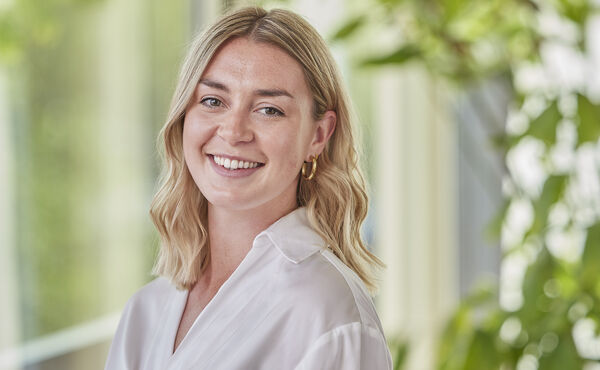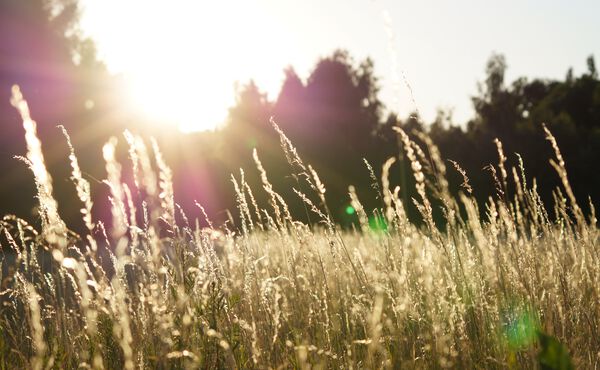As the year draws to a close, we look to the next. This ending signals a new beginning, a fresh start and an opportunity to make changes or plans. However, whilst it can be exciting to look forward, how often do you take a moment to look back? Research has shown that acts of reflection and practicing gratitude can make you a happier person. If you’ve had a tough year or the ongoing pandemic has left you feeling unaccomplished and stressed, you may be struggling to feel grateful. If so, this is exactly the time to start - you just need the right tools. Here’s how to enter the new year with a sense of awareness and a positive outlook.
The importance of gratitude
Taking time out of your busy day to reflect on your year might seem like an odd activity. The flurry of life can make it all too easy to live days blindly from one to the next, but as the year comes to an end, now is the perfect time to take this moment. Cognitive behavioural therapist and holistic coach Lorna Devine believes that refection can be more beneficial than making resolutions. ‘It can be so easy to get into the habit of just leaping straight onto the next thing you need to achieve, do, be or have. If you are constantly striving or always ticking off the next item on your to do list, you may find that you forget how far you have come and don’t take the time to really celebrate your wins, no matter how big or small’.
Research has shown that practicing gratitude can have significant health benefits. When we reflect on these reasons to be thankful, whether we write them down, take a photo or share them with a friend, we have to pause for a moment. In this moment the brain releases serotonin and dopamine which contribute to happiness and well-being. In 2017, a study took place on 300 adults who were seeking health counselling. The group that was tasked to write gratitude letters for 3 weeks reported significantly better mental health than the others, with their well-being also improving even more 12 weeks after the research finished. With only 23 percent of participants sending the letters to the intended recipients, this shows that just the act of writing these things down is truly effective. ‘Gratitude helps you manage stress. It creates positive moods that stop you dwelling on negative events or emotions,’ explains business and life coach Puja McCymont. ‘Appreciating what is going well in your life contributes to a greater sense of meaning.’ When you’re looking to make new year resolutions or Christmas lists, it’s easy to be surrounded with thoughts of what you don’t have, uncompleted goals or struggles you face. Gratitude shifts the attention away from toxic emotions like resentment, frustration or envy and creates a more positive mindset.

Where to start
Reflection may be a trickier task for some, especially if this year has featured loss or stress. ‘You have to look at the little things,’ advises Puja. She encourages us to ask ourselves these questions: ‘Were you able to keep your job when so many others couldn’t? Did you have a roof over your head? Were you able to eat and clothe yourself? Did you have people who loved and cared for you?’ We so often take these things for granted but recognising the importance of these smaller things can bring contentment. When you think of these things, try writing them down. Journaling has become a popular activity to practice gratitude. Puja recommends jotting down two things in the morning and evening that you are grateful for that day.
If writing is not your thing, Lorna shares with us five other practices we can try.
- Tell someone you love them and how much you appreciate them
- Start to tune in to the small things – begin to notice the beauty in nature every day.
- Make a gratitude board with photos or pictures of all the things you are grateful for and put this up somewhere as a visual reminder.
- Share what you are grateful for with others.
- Do a gratitude meditation. I love the Calm and Headspace apps. The Calm app has a seven days of gratitude meditation series.
Like the earlier study showed, all the benefits of gratitude practices aren’t instant. Taking this time at the end of the year to reflect is great but try to keep up these reflective practices. Gratitude gives us the tools to rewire our brains to handle problems with greater awareness and perception – something that’s invaluable in a crisis or just on those days where you feel like the world’s out to get you. Taking the time in the morning to appreciate where your coffee beans came from or reminding yourself at night how lucky you are to have a bed to sleep in, only takes a second but could make a huge difference.
This December, we are celebrating the ‘Big Calm for Christmas’, Rituals is encouraging us all to use the advent period as a time to unwind. We hope that taking moments of reflection will help make this Christmas a soulful one. Check out all our Big Calm for Christmas tips and tricks on Instagram @RitualsCosmetics and via the #TheBigCalm hashtag


.jpg?sw=600&sh=370&sm=fit&cx=0&cy=0&cw=600&ch=370&sfrm=jpg)


.jpg?sw=600&sh=370&sm=fit&cx=0&cy=0&cw=600&ch=370&sfrm=jpg)

